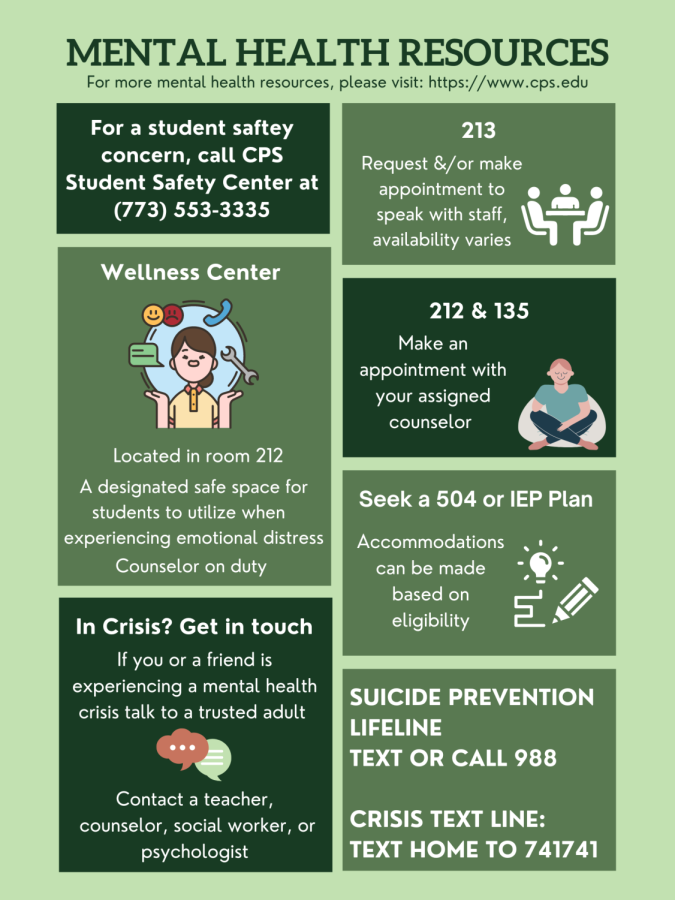By Airis Cervantes
Anahi Tilapa, Div. 281, crossed the U.S.-Mexican border alone at the age of eleven. The guides that took her across were not very hospitable. She spent a day without eating, locked in a room. She was alone because she did not want to leave her home in Mexico when the rest of her family immigrated to the States. Upon her decision to join her family in America, she had hopes for a brighter future.
“My family and I got separated and I basically had to cross by myself,” said Tilapa.
Originally from Querétaro, Mexico, Tilapa’s parents decided to come to the United States for a better life for their family.
“Since everything was getting really expensive over there, it was really hard to afford anything at all,” Tilapa said. “No, I didn’t want to come. I had a lot of friends over there and I knew that moving would change my life completely.”
She has been in the U.S. for about five years.
With a stable GPA of 4.2, Tilapa never imagined college admission would be such an arduous challenge. Undocumented students are not eligible for financial aid because they are not legal residents of the U.S.
An anonymous student with the last name Garcia plans to take a year off after high school to earn the money she needs to pay for her higher education. Born in Mexico City, she and her mother immigrated to the U.S. when she was only six years old.
As an undocumented student that plans to attend college, she is limited in payment options. However, she and Tilapa are not the only ones.
“I’m [going to] start working for a little and take a year off,” said an anonymous junior Div. 257, also undocumented.
Senior students at Lane are encouraged to complete a Free Application for Federal Student Aid (FAFSA) form. It requires the applicants to give a social security number, but undocumented students do not have one. Loans and most scholarships also require a social security number, making government aid inaccessible.
As the oldest of three girls, Garcia is the only one who was not born in the U.S. She admits that she gets jealous of her sisters. As naturalized citizens, her sisters have benefits and opportunities she does not.
Sandy Paniagua, Div. 282, immigrated from Michoacán, Mexico at the age of two with her family for “a better life.” On a college tour to the University of Illinois in Urbana Champagne, Paniagua decided that it was her dream school. Like Garcia, her younger siblings are naturalized citizens while her parents and she are not.
“The cost is too much and I don’t know if I can go because I’m an immigrant,” said Paniagua.
Due to the recession, there is even less money available for college aid. The number of scholarships for undocumented students has consequently dropped.
“Students are reluctant to come forward,” said Ms. Coorlas of the counseling department. “It’s something within their family they don’t want to publicize. They should attempt to talk to us. Let us help them find the best opportunities. If they can tell somebody, it would be a start.”
If students do not come forward, they are potentially missing out on information that could help them. The administration has made discreet attempts to meet with undocumented immigrants over the years, but they have not been successful.
“Being undocumented won’t keep you out of college. You just have to be creative in finding resources,” said counselor Cindy Sanders.
Most undocumented students struggling to find financial aid have lived in the U.S. most of their lives. They were completely unaware as kids that they were being brought to another country, and now they are suffering the consequences.
Although undocumented students seem to be more worried about being able to pay for college, they have the same hopes and expectations as any other student. About five to six percent of seniors in the 2009-2010 school year were undocumented.
Illinois is one of the few states in the nation in which undocumented students are eligible to pay in-state tuition. Although they are not legal residents in the U.S., they are viewed as residents of Illinois.
When the DREAM Act (Development, Relief, and Education for Alien Minors) was proposed in Congress, immigrants grew hopeful, but not many of them believed it would pass.
“If the Dream Act had passed, I wouldn’t be feeling unsure about a successful future,” said Garcia.
Perhaps one day, this dream will come true.




